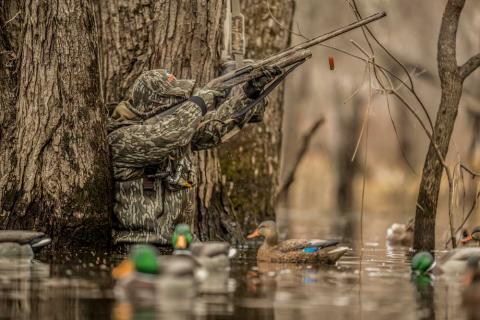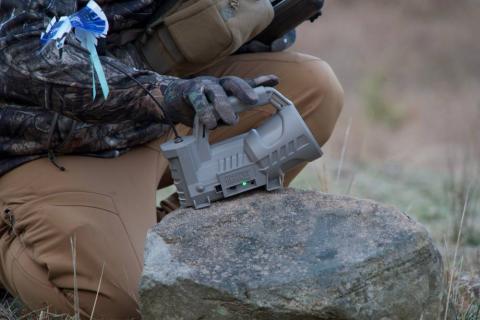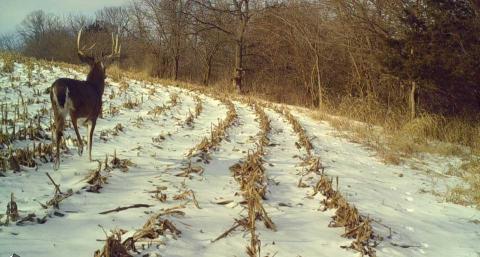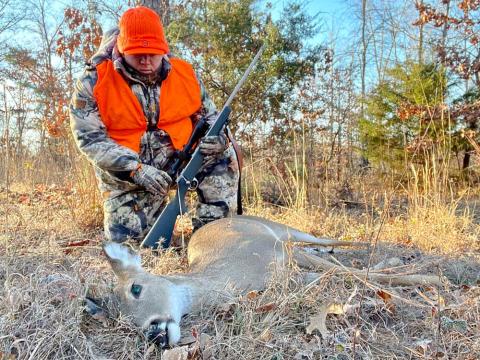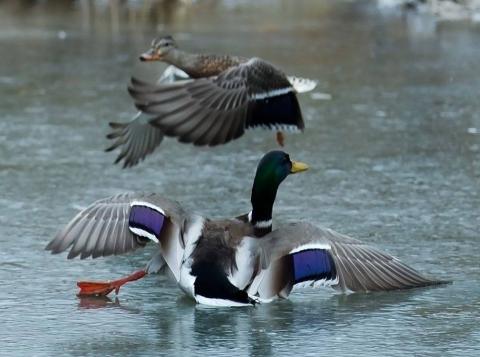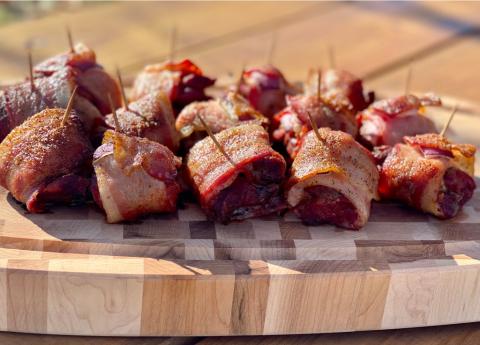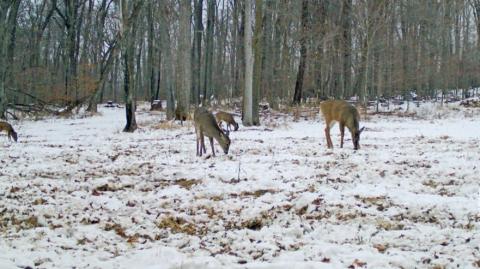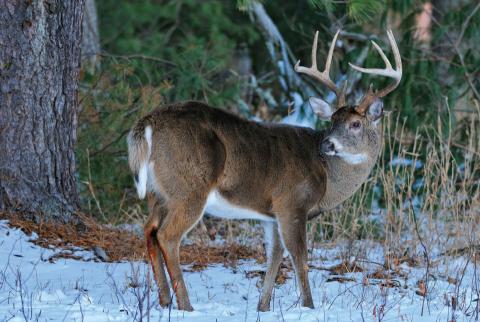Jason Worley
She was seven when I decided it was time. The stand of hickory trees just below the house was overrun with squirrels, and I was confident she would get to experience the truths that accompany the reality of hunting.
Late September brought about a bumper crop of hickory nuts, and as we sat below a large mockernut hickory tree, the limbs above seemed to be in constant motion as the grey squirrels searched the upper limbs for a meal. Tucked between my legs, she watched and pointed each time a bushytail would spring from one limb to another. I was thankful the squirrels were so preoccupied with their own hunt. Stealth has never been vital for many seven-year-olds.
A young fox squirrel descended the trunk and hunkered in the crook of a limb to begin cutting on a ripened nut. I decided it was time. I quietly whispered to my daughter to sit very still, and I raised the .22 rifle. With the crack of the rifle, the squirrel rolled off the limb and hit the leafy duff with a soft thud. Eager eyes looked up at me, and a smile came across her young face when I said we had just shot a squirrel.
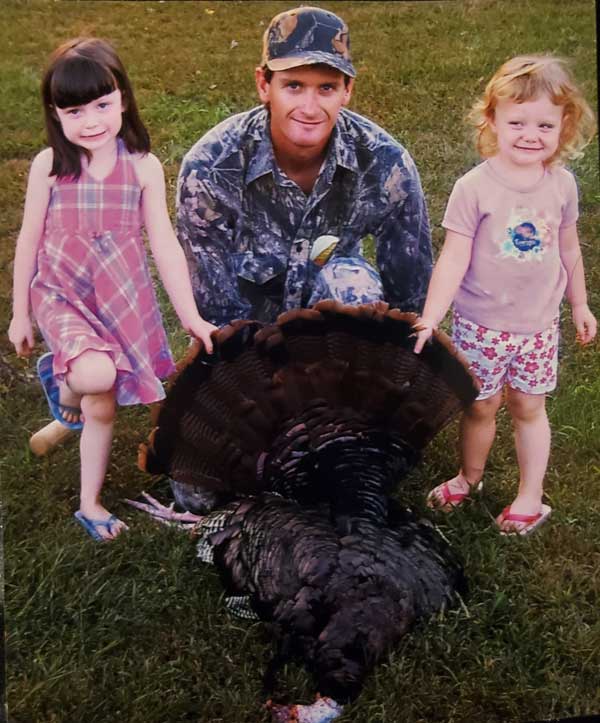
Her eyes held a sense of wonderment as she ran her fingers across the squirrel's back. I was tense, to say the least, as I was unsure how she would respond to the fact she had just seen this active little creature alive, and now it was reduced to a warm, lifeless mass. I always made it a point to include both my daughters in each successful hunt, even if it was only in the front yard when I returned. Still, the finality of actually seeing the animal alive was something I felt she needed to experience before it was time for her to become directly involved in the act of hunting. Seven is young, but there was something in those young eyes as she looked up at me and simply said, "Good job Daddy." I felt sure she would be a hunter.
The years went by, and she became quite the shot with the little single-shot .22 rifle. Before I knew it, she could shoulder my lightweight New England Arms 20 gauge I had been given as a youngster and was shooting a well-placed pattern at 20 yards. We ventured into the woodlots on the family farm to pursue bushy tails and eventually turkeys. With each trip, her interest seemed to grow, and I always took the time to explain the many little hidden stories so many of us, older hunters, take for granted. She seemed to be soaking it up and loving it.
It was when she completed her hunters' education course, I explained the significant role hunters had played in her being able to see many of the animals we had spent so much time searching for. I'll never forget on one of our many quests for squirrels, her saying to me, "Dad, we're not hunting we're conservationing." I chuckled due to the lightness of our game bags, but the profoundness of that statement and the fact she had, indeed, paid attention was truly something. She was "getting it."
Her younger sister had also been progressing through the steps of becoming a hunter, and it was deer that seemed to be her game animal of choice. She had proven more than once that she, too, understood hunting was more than just taking an animal's life. Two years apart in age, they had both been exposed to the outdoors before they could walk. Each hunt with them brought back memories of my own childhood and how, as a young adult, I looked forward to the day I would have children and pass on the family legacy of being a hunter. The fact they were girls never crossed my mind either. I had been taught from a young age that if a person shows the desire to hunt and a genuine want to learn, gender means nothing. They were going to be hunters, and I was confident they were well on their way.
On an early youth deer hunt with my youngest daughter, I saw something change, though. It was something I had begun to see in both girls. We had been set up on a white oak flat for a few hours, and we had seen several deer. A young doe had offered a great shot, but she wanted to wait. It didn't feel right, she said. I was eager for her to take her first deer but knew the implications of rushing something like this and shook my head in agreement and assured her that was fine; we could wait.
About an hour later, a respectable buck came in to feed on the acorns that had been raining down on us all afternoon. He turned broadside at 40 yards, and I asked her if she was ready. Her response was a confident, "Yes." She eased the rifle to her cheek and took careful aim. I could see her breathing getting faster and faster, and strangely, she had the same nervous bounce in her left leg that I had experienced so many times throughout my life as a hunter.
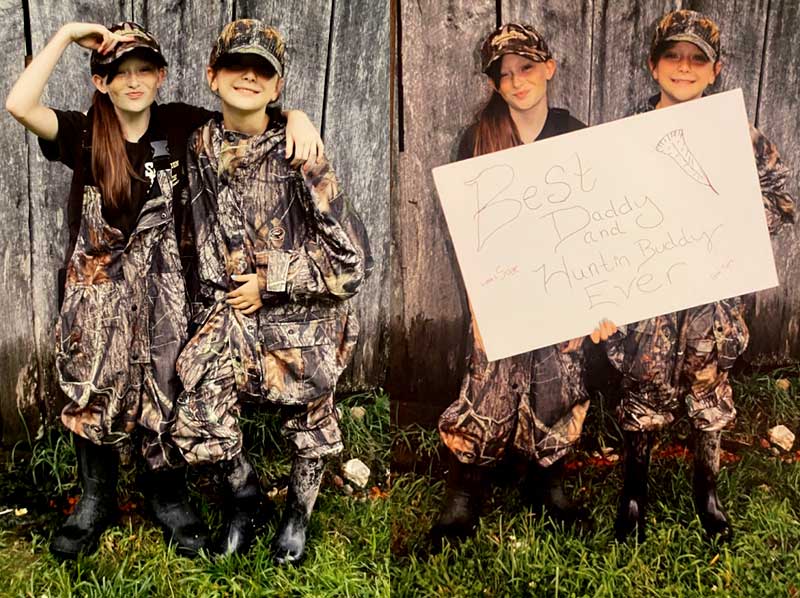
I waited and waited, anticipating at any moment the rifle would speak, and it never happened. I whispered that she needed to do it soon, or the buck would be into some brush, making the shot questionable. She lowered the gun, looked over at me, and shook her head softly saying, "I can't." I knew the hunt was over, and things were different.
The coming months saw several changes in my daughters, and it wasn't long until they were both too busy or just didn't feel like hunting with me. I took it in stride but couldn't help feeling I had somehow fallen short of my essential duty as a hunter...to bring in the next generation of hunters. We hunters constantly hear about the importance of that concept, and I felt I had failed and could not figure out where I had gone wrong. I firmly believe in letting your child choose their path, and I was in no way going to force the issue, but it still stung.
It had been a handful of years since that last hunt, and I had slowly come to realize they would most likely never hunt. I took several other young and new hunters who were now active in hunting, but there is something about bringing your own kids into hunting that is very special to a hunting parent. But it was during a conversation with a teacher when it finally dawned on me; maybe I was too caught up in this idea of creating only an active hunter.
We were at a cross country meet when myself and my daughters were talking with a new teacher, and the subject of deer hunting came up. His statement was common for many who don't understand hunting, and it provoked a response that struck me deep. He simply said, "I don't know how anyone could care about an animal but want to kill it at the same time." My mind went straight for the answer, but before I could react, my daughters took it head-on and let the teacher know precisely the things I had taught them. From the truth, 9 out of 10 hunts end with no animal being taken, to the concept of fair chase, and finally to the fact that hunters have funded the efforts to bring those deer back. They even threw in the simple truth that a lot of the nonsense you see on the internet and social media is not what hunting really is; it's shamefully done for attention. I was speechless.
At that moment, I realized the importance of creating non-hunters who support what we do. Even if the person you take hunting doesn't turn into an active participant, you've still helped the hunting community, if you've taken the time to do it right. It's not something that happens overnight, though, and it takes dedication and more than a single trip or even a single season. It's a long-term commitment to the person, and their progression as a hunter and lover of the outdoors.
To say I was proud of my daughters at that moment would be an understatement. They not only explained the concept of hunting to the teacher in an informative way, but they did it respectfully. Best of all, the teacher understood it. He responded with an honest, "Well, I've never looked at it that way." I had, in fact, created hunters; they just don't carry a gun or bow like you and me.
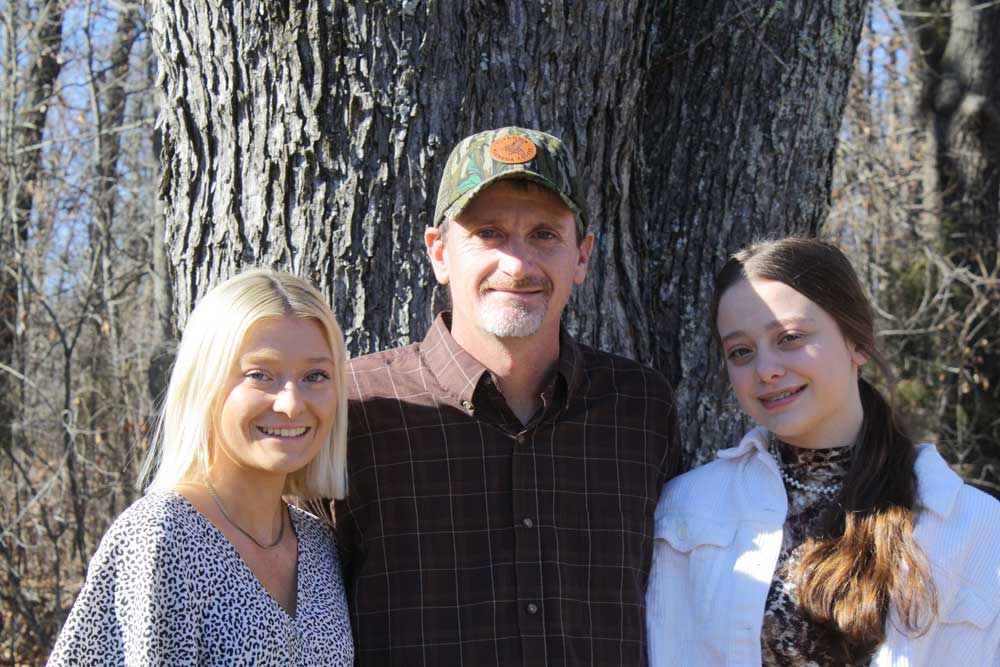
The importance of recruiting new, active hunters can't be overstated. The funding from active participation is essential, but we need to keep in mind that representation in all circles of society carries just as much weight. That representation may very well come from a non-hunter, and it may actually be better in some circles if the person is a non-hunter. Unfortunately, we hunters have proven we have a PR problem at times, and once a person is known as a hunter, their standing, in some circles, drops. It's a sad truth in today's social media-driven world of anything for likes and follows.
Both of my daughters will go on to chase their dreams, and who knows the social and professional circles they may find themselves in. The impact that positive representation will have for all of us who hunt is tremendous. It was tough not turning my girls into active hunters, but I've finally realized we need strong proponents in all walks of life and not just amongst other active hunters.
That child or friend you take hunting may not turn out to be an active hunter, and that's okay; we can't force active participation. Just because that new recruit chooses not to participate next season, doesn't mean you haven't created a strong ally. In reality, if done right, you will have created a conservationist that understands hunters and will stand firm for us when we aren't around. The significance of that concept is extreme, especially in today's world, where we need strong representation on all sides. We can teach these things and produce both hunter/conservationists and non-hunter/conservationists, not just by helping a person take their first game animal or by teaching them the basics of hunting, but through constant exemplification of what is good about hunting. We teach them by educating them on the history of hunting and what it's done for the land and animals, many of those animals being non-game species. We teach them, through example, how to respect the game animal and promote a sound land ethic. We teach them that the things they post to social media and how they interact with non-hunters affect us all. We teach them hunting is 99% connecting to the natural world and 1% the actual taking of an animal's life.
Whether at a suburban school board meeting, a medical conference, a conversation amongst old friends, or any gathering, we hunters are in dire need of solid representation, and not just from active hunters. R3 is a prevalent subject these days, but sometimes I think we stop too soon with the idea. The acronym stands for recruitment, retention, and reactivation. Through my experience trying to turn my daughters into active hunters, I've realized we need one more R. Let us add representation.

















